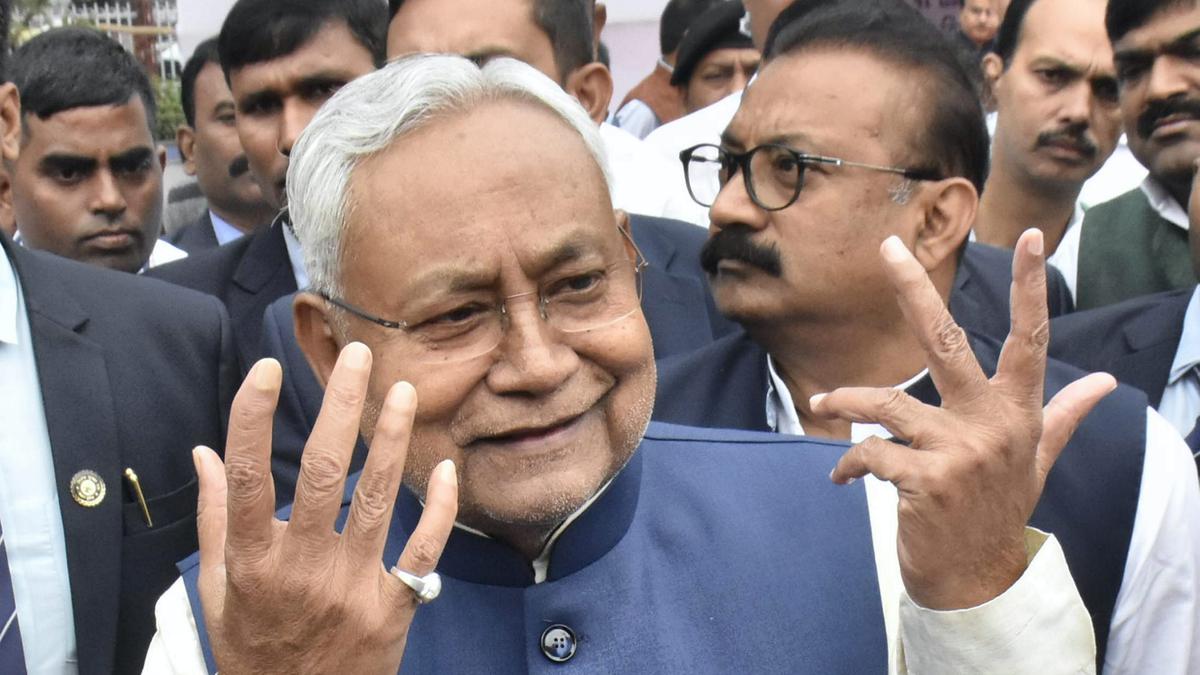
Bihar Chief Minister Nitish Kumar speaks out for first time since INDIA meet
The Hindu
Bihar Chief Minister Nitish Kumar rubbishes speculations of disappointment, stresses need to expedite seat-sharing arrangements for INDIA bloc.
Bihar Chief Minister Nitish Kumar on December 25 rubbished speculations that he felt having been passed over at INDIA bloc's meeting in Delhi last week when it was suggested that Congress president Mallikarjun Kharge be made the prime ministerial face.
The JD(U) leader maintained that having taken the initiative to bring parties opposed to the BJP, he desired nothing for himself but admitted having stressed at the meeting the need to expedite seat-sharing arrangements.
"I felt no disappointment (maayusi)....no resentment (naaraazgi)", asserted Kumar when journalists approached him with queries here at a memorial of late Atal Bihari Vajpayee where he had turned up to pay tributes on the former prime minister's birth anniversary.
"At the meeting the issue (of naming a leader came up). I made it clear at the outset that I was not interested. Then another name was proposed, I said it was okay with me", said the Bihar Chief Minister alluding to the proposal by his Delhi and West Bengal counterparts, Arvind Kejriwal and Mamata Banerjee respectively.
The JD(U) leader's detractors in the BJP-led NDA have latched on to the development and claimed that Mr. Kejriwal, who heads the Aam Aadmi Party and Banerjee, who is Trinamool Congress supremo, had in effect snubbed Mr. Kumar's alleged prime ministerial ambitions.
Notably, in the post-meeting press conference that Mr. Kharge addressed, the Congress president had expressed the desire to keep the issue of prime ministerial face on the backburner, underscoring that the INDIA coalition needed to first win adequate number of Lok Sabha seats.
Also read: Which are the 26 parties in the INDIA combine, the face of Opposition unity for the 2024 Lok Sabha polls?

 Run 3 Space | Play Space Running Game
Run 3 Space | Play Space Running Game Traffic Jam 3D | Online Racing Game
Traffic Jam 3D | Online Racing Game Duck Hunt | Play Old Classic Game
Duck Hunt | Play Old Classic Game











